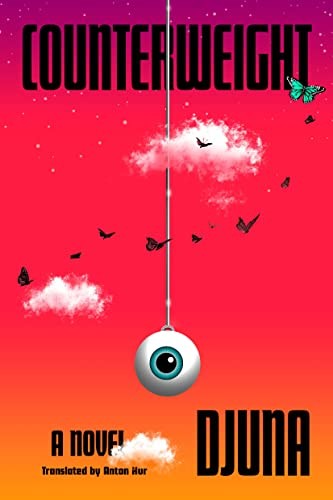Leaving_Marx wants to read Counterweight by Anton Hur

Counterweight by Anton Hur, Djuna
On the fictional island of Patusan—and much to the ire of the Patusan natives—the Korean conglomerate LK is constructing an …
Printer, anarchist, illustrator, & enthusiast of the printed word.
FediBanter: @Thundering@kolektiva.social
⭐⭐⭐⭐⭐ I want everyone to read it and think of it often ⭐⭐⭐⭐ Great book, fun, and uncomplicated ⭐⭐⭐ Good, feel complicated about if I wasted my time ⭐⭐+⬇️ I hate read this
This link opens in a pop-up window
6% complete! Leaving_Marx has read 2 of 30 books.

On the fictional island of Patusan—and much to the ire of the Patusan natives—the Korean conglomerate LK is constructing an …

Welcome to Alkhalend, Jewel of the Waters, capital of Usmai, greatest of the Successor States, inheritor to the necromantic dominion …

Earth is not well. The promise of starting life anew somewhere far, far away - no climate change, no war, …

"On board the moletrain Medes, Sham Yes ap Soorap watches in awe as he witnesses his first moldywarpe hunt: the …

From the publisher---
It is winter in Area X, the mysterious wilderness that has defied explanation for thirty years, …
🥳🎈🎊🍾🎉 100 books!

From the publisher---
It is winter in Area X, the mysterious wilderness that has defied explanation for thirty years, …

"In the second volume of the Southern Reach Trilogy, questions are answered, stakes are raised, and mysteries are deepened. In …

"In the second volume of the Southern Reach Trilogy, questions are answered, stakes are raised, and mysteries are deepened. In …

Area X has been cut off from the rest of the world for decades. Nature has reclaimed the last vestiges …

Area X has been cut off from the rest of the world for decades. Nature has reclaimed the last vestiges …

A new novel about a seductive and cunning American woman who infiltrates an anarchist collective in France—a propulsive page-turner of …